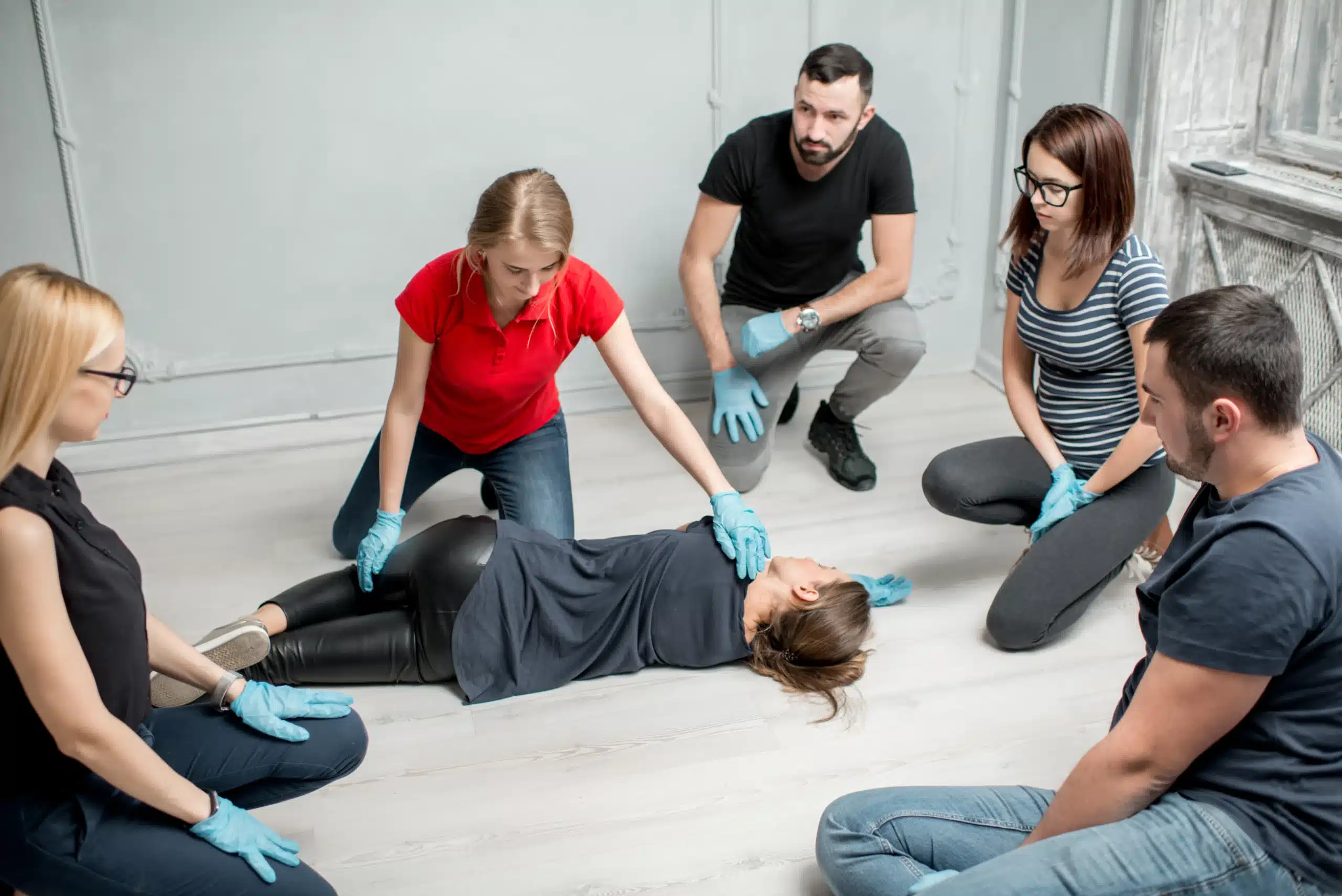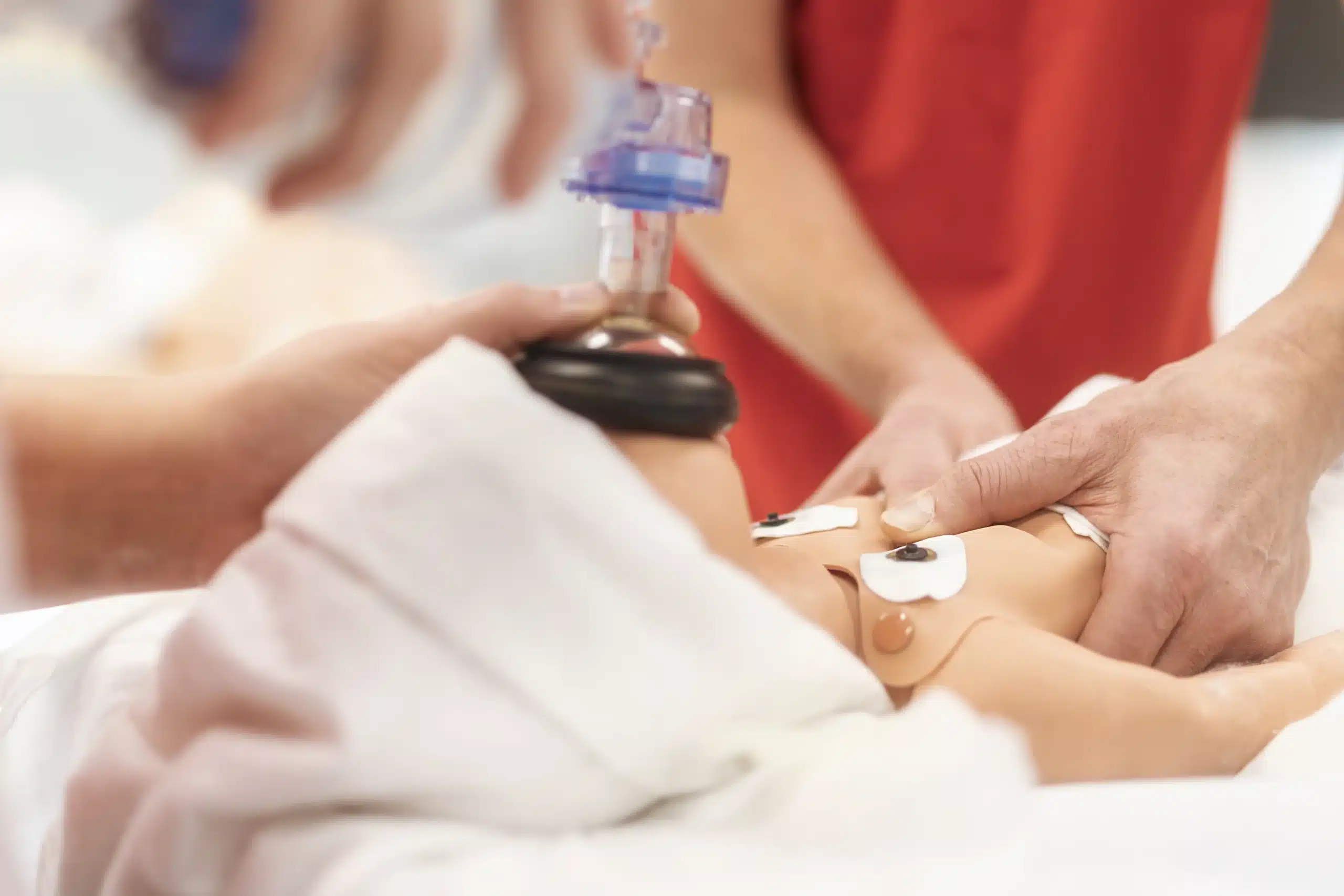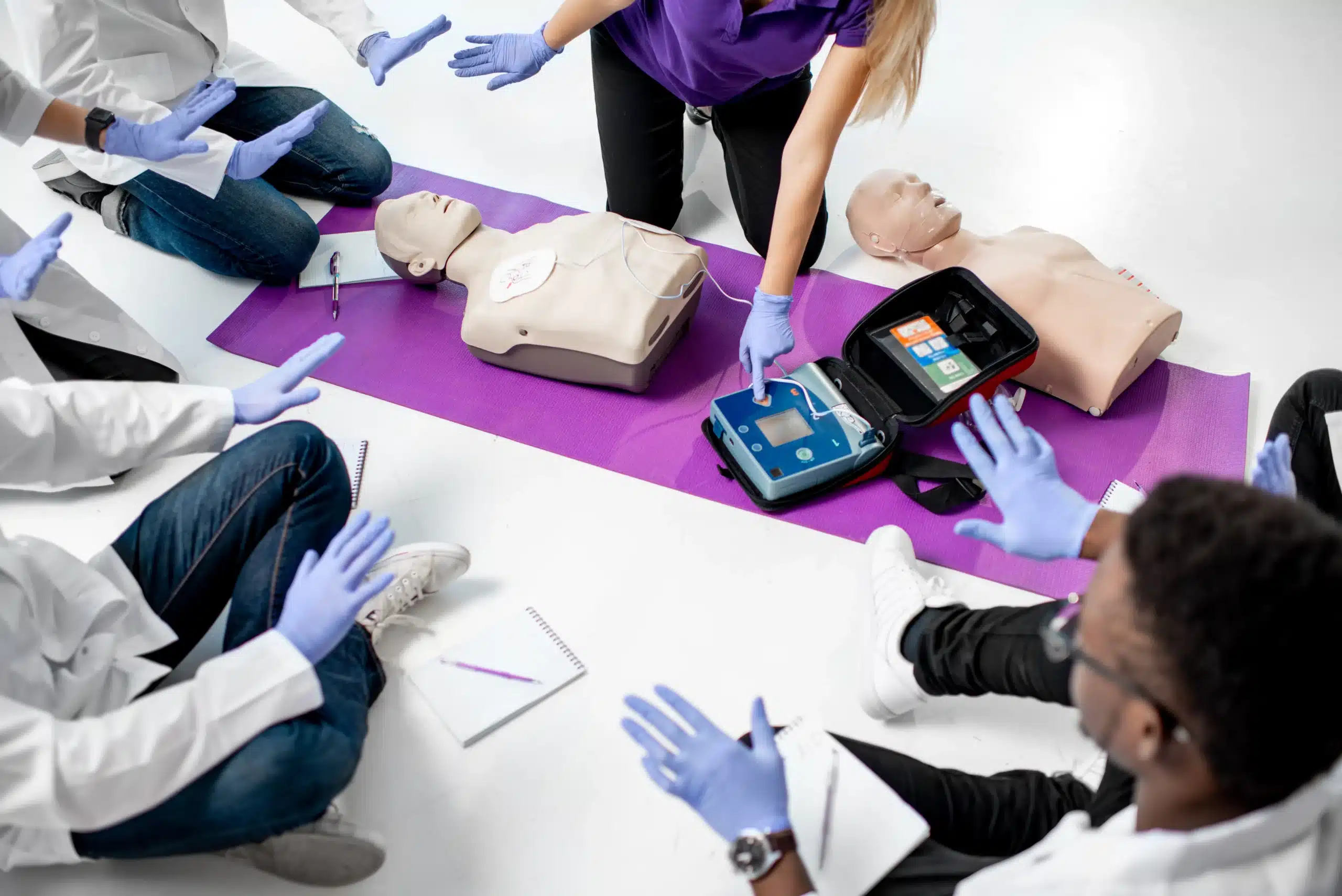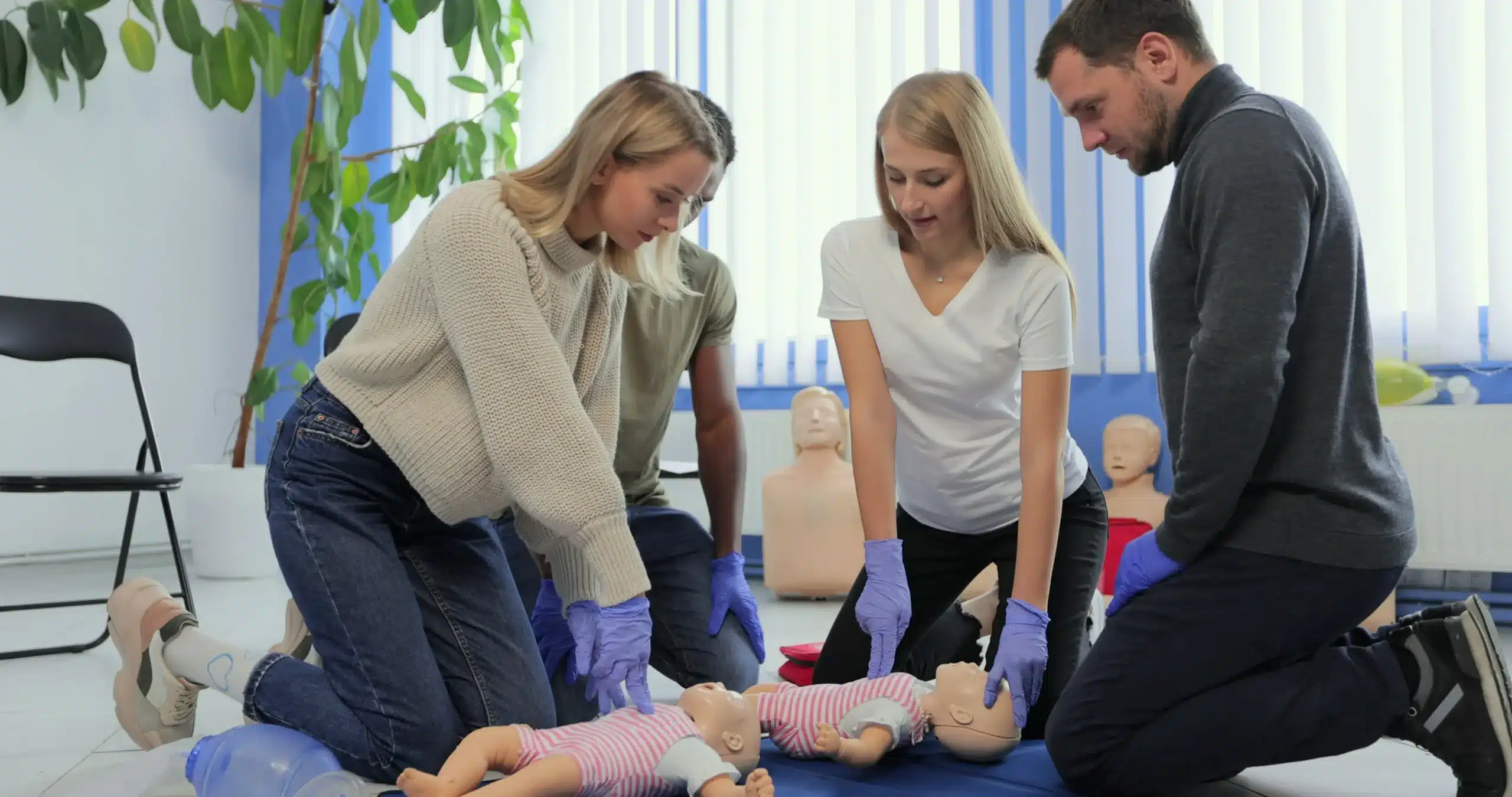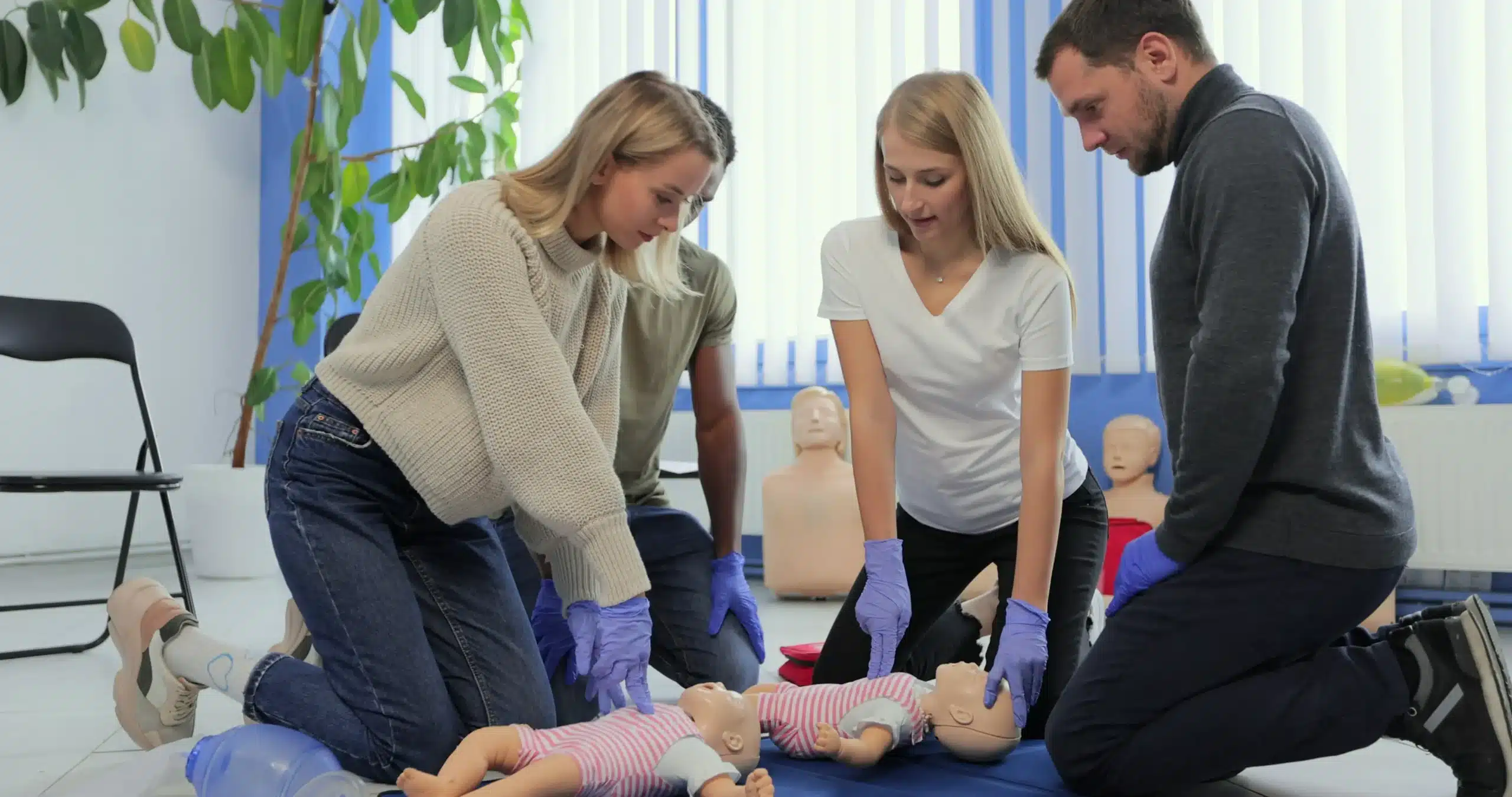As a healthcare provider in Berkeley, you’re dedicated to providing the best possible care for your patients, especially the tiniest and most vulnerable among them. Neonatal Resuscitation Program (NRP) certification is more than just a credential—it’s a testament to your commitment to excellence in newborn care. This article explores the world of NRP in Berkeley, providing a comprehensive guide to understanding the program, its benefits, and how it empowers healthcare professionals to handle newborn emergencies with confidence and skill. We’ll discuss the specific challenges faced by providers in Berkeley and how NRP training directly addresses these challenges, ultimately leading to improved patient outcomes. Join us as we delve into the importance of NRP and its impact on the lives of newborns in our community.
Key Takeaways
- NRP certification is a career asset for Berkeley healthcare providers: It demonstrates a commitment to high-quality neonatal care, opening doors to specialized roles and advancement opportunities. Choose a program that fits your schedule and budget, and consider providers offering group discounts.
- Effective NRP training blends online learning with hands-on practice: This approach allows you to absorb key concepts at your own pace before applying them in realistic simulations. Complete the required in-person training promptly after finishing the online modules.
- Maintain your skills and stay up-to-date: The field of neonatal resuscitation is constantly evolving. Renew your certification regularly and seek out continuing education to refine your expertise and provide the best possible care. Look for training programs that emphasize hands-on practice and incorporate the latest guidelines.
What is NRP? Why It’s Crucial for Berkeley Healthcare Professionals
What is the Neonatal Resuscitation Program?
The Neonatal Resuscitation Program (NRP) equips healthcare professionals with the skills to resuscitate newborns in distress. Developed by the American Academy of Pediatrics (AAP) and the American Heart Association (AHA), this specialized training focuses on evidence-based practices for immediate neonatal care. It goes beyond basic CPR, addressing the unique needs of newborns in critical situations. The program emphasizes a team-based approach, ensuring everyone involved in a newborn’s care is prepared and coordinated. For healthcare providers in Berkeley, NRP training is an essential resource.
Why NRP Certification Matters in Berkeley
In Berkeley, NRP certification is essential for any healthcare professional involved in newborn care. It signifies a commitment to best practices and provides a standardized approach to neonatal resuscitation. Hospitals and healthcare facilities often require NRP certification for their staff, ensuring a baseline level of competency in managing newborn emergencies. Maintaining current NRP certification demonstrates a dedication to staying updated on the latest advancements in neonatal care. This commitment translates to better outcomes for newborns. Learn more about NRP Certification.
Challenges for Berkeley Healthcare Providers
Providing effective neonatal resuscitation presents unique challenges. While NRP training provides a crucial foundation, applying that knowledge in real-world scenarios requires ongoing practice and experience. Healthcare providers must be prepared to adapt their skills to diverse situations and work effectively within a team. Staying current with evolving guidelines and best practices is also essential. Explore the challenges of neonatal resuscitation. This dedication to continuous learning ensures that Berkeley healthcare professionals remain equipped to handle the complex demands of neonatal emergencies.
Your Guide to NRP Certification Classes in Berkeley
Blended Learning vs. In-Person Classes
The Neonatal Resuscitation Program (NRP) certification blends online learning with hands-on training. This approach lets you learn core concepts at your own pace before practicing essential skills in person. You’ll start with online modules covering the causes, prevention, and management of neonatal asphyxia, and then build on this knowledge with realistic simulations during the in-person sessions. This blended learning format combines the flexibility of online study with the benefits of hands-on learning. The online portion tests your understanding, while the in-person component focuses on practical application and teamwork.
Course Content and Skills
NRP certification equips healthcare professionals with the skills to assess and resuscitate newborns. The curriculum covers a range of topics, from basic resuscitation techniques to advanced life support procedures. You’ll learn how to evaluate a newborn’s condition, provide respiratory support, manage airway complications, and administer medications. The course emphasizes teamwork and communication in emergencies, preparing you to work effectively as part of a resuscitation team. This training ensures you can confidently handle any neonatal emergency.
Duration and Time Commitment
The NRP course offers flexibility in your time commitment. Expect to spend approximately three to five hours completing the online modules. Afterward, you’ll schedule a two-hour, in-person skills session in nearby Oakland. It’s important to complete the in-person portion within 90 days of finishing the online modules; otherwise, you’ll need to retake the online portion. This structured approach accommodates busy schedules while ensuring you receive both theoretical and practical training.
Cost of NRP Certification in Berkeley
NRP Class Pricing
NRP classes, essential for healthcare professionals to learn life-saving interventions for newborns, are offered by the American Academy of Pediatrics (AAP) and the American Heart Association (AHA). In Berkeley, the typical cost for an NRP certification class ranges from $95 to $105, depending on the provider and course format. Factors influencing price can include whether you choose a blended learning experience (partially online) or a completely in-person class.
Group Discounts and Packages
If you’re training a team from a hospital, clinic, or other healthcare setting, ask about group discounts. Many training providers, such as Safety Training Seminars, offer reduced rates for group NRP classes, making it more cost-effective to train multiple staff members. This can significantly lower the per-person price. Some providers also offer package deals that might include initial certification, renewal courses, or other related training.
Cost Comparison with Nearby Cities
NRP certification costs remain fairly consistent across the Bay Area. Whether you take your NRP class in Berkeley or a neighboring city like Oakland or Alameda, expect similar pricing. The online portion of a blended learning NRP course typically requires 3–5 hours, followed by a 3-hour in-person skills check. This standardized approach, like the one used by SureFire CPR, ensures consistent training regardless of location. While comparing prices is always smart, don’t anticipate drastic differences between Berkeley and nearby areas.
NRP Class Schedules & Registration
How Often are NRP Classes Offered?
NRP classes are offered frequently to meet the high demand in the Bay Area. You can find classes approximately 16 times per month, making scheduling convenient. Our Berkeley location offers a central point for students coming from Alameda, Oakland, and Berkeley, CA. Check our NRP course page for the most up-to-date schedule.
Register for an NRP Course
If you work with newborns, NRP certification is a valuable asset. Visit our website to view upcoming NRP class schedules and locations in Berkeley and surrounding areas. We offer a streamlined registration process to get you signed up quickly.
Prerequisites & Preparation
Before attending the in-person NRP class, you’ll need to complete an online exam through the American Academy of Pediatrics. This online portion typically takes between 30 minutes and 1.5 hours for the Essentials course, with additional time required for the Advanced course. The in-person portion involves hands-on skill stations and simulated scenarios, giving you practical experience. This part of the course usually lasts around two hours for Essentials or 1.5–2 hours for Advanced, depending on class size and individual learning pace. This blended learning approach ensures you have both the knowledge and practical skills to handle neonatal emergencies.
Choosing Your NRP Provider in Berkeley
Finding the right Neonatal Resuscitation Program (NRP) provider is key to gaining the skills to care for newborns. Several organizations offer NRP training in Berkeley, each with its own approach. Let’s explore some options and what to consider when making your decision.
Safety Training Seminars
Safety Training Seminars offers a range of American Heart Association courses, including NRP certification, in Berkeley. They also provide other essential certifications like BLS, ACLS, PALS, and First Aid, making them a convenient option for healthcare professionals. Their focus on customer service and competitive pricing makes them a popular choice. Serving Alameda, Oakland, and Berkeley, they are a local option for those in the East Bay. They also offer group discounts which can be helpful for teams wanting to train together.
Berkeley CPR Classes
Berkeley CPR Classes emphasizes the importance of NRP training. They highlight how the program equips professionals with the skills to handle neonatal emergencies, based on guidelines from both the American Academy of Pediatrics (AAP) and the American Heart Association (AHA).
SureFire CPR
SureFire CPR focuses on how NRP certification prepares medical professionals to assess and respond to newborn emergencies. They recommend NRP training for professionals likely to work with newborns, such as pediatricians, respiratory therapists, and nurses.
National Hearted
National Hearted offers both the NRP Essentials Provider and Advanced Provider courses, giving healthcare professionals choices based on their skill level and career goals. They clearly outline the different course options.
Choosing a Provider: What to Consider
With several NRP providers in Berkeley, it’s important to weigh your options. Think about class schedules and how they fit your availability. Consider the instructors’ experience and the training format—online, in-person, or blended learning. Research the provider’s reputation and read reviews. Finally, compare pricing and check for group discounts. Choosing a provider that aligns with your learning style and professional goals is essential.
Get NRP Certified: Process & Maintenance
Steps to NRP Certification
Becoming NRP certified involves two key steps. You’ll begin with online learning modules covering the fundamentals of neonatal resuscitation. These online modules typically take three to five hours to complete. Next, you’ll schedule an in-person skills check with a certified NRP instructor. This hands-on session, usually around three hours, allows you to demonstrate your proficiency in the techniques learned online. For more details on NRP certification, check with your chosen provider.
Renewal Requirements
NRP certification is valid for two years. To maintain your credentials and stay current with advancements in neonatal resuscitation, you must renew your certification every two years. Specific renewal requirements can vary, so check with your certifying organization or instructor for the most up-to-date information.
Continuing Education
The NRP program offers continuing education credits for various healthcare professionals, including registered nurses, nurse practitioners, midwives, and respiratory therapists. A comprehensive guide details the specifics of these credits. Completing the advanced provider curriculum often provides more credits, offering a valuable opportunity for professional development in neonatal care.
Benefits of NRP Certification in Berkeley
Career Advancement
NRP certification is a valuable asset for healthcare professionals in Berkeley. It shows a commitment to high standards of neonatal care, which can lead to new opportunities. For those working in hospitals, clinics, or other healthcare settings, holding an NRP certification can be key for career advancement. It can help you qualify for specialized roles, like working in a neonatal intensive care unit (NICU), or lead to promotions and higher pay. Whether you’re a nurse, respiratory therapist, or physician, NRP certification highlights your expertise in neonatal resuscitation.
Improved Patient Care
Beyond career advantages, NRP certification directly improves patient care. The program gives healthcare providers the skills and knowledge to effectively resuscitate newborns, potentially saving lives. Through NRP training, you’ll learn to assess newborns, make quick decisions under pressure, and perform life-saving techniques. This specialized training builds confidence, allowing you to provide the best possible care for newborns. The focus on evidence-based practices and teamwork further strengthens the quality of care.
Serving Berkeley’s Diverse Patients
Berkeley is a diverse city, and its healthcare providers care for a wide range of patients. NRP certification is especially relevant because it prepares professionals to handle the unique challenges of caring for newborns from different backgrounds. Neonatal resuscitation programs emphasize rigorous training designed for diverse groups of healthcare professionals. This helps ensure that all newborns receive the same high standard of care. By earning your NRP certification, you contribute to a more equitable and effective healthcare system for everyone in Berkeley.
Master NRP Skills: Classroom to Practice
Key Techniques & Knowledge
NRP certification equips healthcare professionals with essential skills to assess and treat newborns. These skills range from initial assessment and airway management to advanced life support techniques. Understanding a newborn’s physiology is critical, as is quickly recognizing and responding to distress. Anyone who might encounter neonatal patients—especially pediatricians, respiratory therapists, and nurses—benefits from comprehensive NRP training. This foundational knowledge prepares healthcare providers to confidently manage neonatal emergencies.
Simulation-Based NRP Training
Hands-on training is paramount for mastering NRP. Simulation-based learning offers a safe environment to practice critical skills and decision-making. Studies show that simulation training, especially methods like Rapid Cycle Deliberate Practice (RCDP), significantly improves provider comfort and skill retention. RCDP involves repeated simulations with immediate feedback, allowing participants to refine their techniques and build muscle memory. This approach has been shown to decrease the time it takes to perform critical interventions, as highlighted in this research on improving NRP performance. For newer learners, an enhanced NRP provider course tailored to their needs can boost confidence and knowledge.
Applying NRP Skills
The medical field is constantly evolving, and NRP is no different. Staying up-to-date with the latest guidelines and best practices is crucial for providing excellent care. Continuing education and regular review help healthcare providers effectively apply their NRP skills in real-world situations. The NRP course itself continually adapts to reflect evidence-based educational strategies to improve resuscitation outcomes. This commitment to ongoing improvement ensures NRP training remains relevant and impactful. Further research supports the use of RCDP simulation during NRP training for continuous improvement.
NRP Training Feedback & Improvement
The Neonatal Resuscitation Program (NRP) is constantly evolving to reflect the latest research and best practices in neonatal care. Understanding participant feedback and ongoing curriculum improvements is key to ensuring the program remains effective and relevant for healthcare providers in Berkeley.
Participant Review Themes
Studies show a clear need for NRP courses tailored to the specific learning needs of novice learners. New providers often express a desire for more hands-on practice and personalized instruction to increase their comfort levels with newborn resuscitation knowledge and skills. This feedback highlights the importance of creating a supportive learning environment where participants feel empowered to ask questions and practice essential techniques. Research emphasizes the positive impact of enhanced NRP courses designed for these novice learners.
Enhance NRP Classes
Improving NRP courses starts with a focus on enhancing the learning experience. This means incorporating evidence-based educational strategies that improve outcomes. One example is the development of enhanced NRP provider courses designed to build novice learners’ confidence with NRP knowledge and skills, as described in this ScienceDirect article. These enhanced courses often include more interactive elements, simulations, and opportunities for personalized feedback. The goal is to move beyond rote memorization and empower participants to apply their knowledge in realistic scenarios.
Improve NRP Curriculum
Continual improvement of the NRP curriculum is essential for staying up-to-date with advancements in neonatal resuscitation. The curriculum should embrace innovative teaching methods like Rapid Cycle Deliberate Practice (RCDP), which provides in-event feedback during simulations, allowing for immediate adjustments and a continuous improvement process. This study details the effectiveness of RCDP in NRP training. Another approach demonstrates how simulation-based training with RCDP can improve the performance of pediatrics interns, decreasing their response time in critical neonatal resuscitation situations, according to research from the National Library of Medicine. By incorporating these innovative techniques and staying informed about the latest research, NRP training programs can ensure they are equipping healthcare professionals with the skills and knowledge they need to provide the best possible care for newborns.
The Future of NRP in Berkeley
The landscape of neonatal resuscitation is constantly evolving, driven by advancements in technology and ongoing research. Staying informed about these changes is crucial for healthcare providers in Berkeley committed to delivering the best possible care.
New Technologies in Neonatal Resuscitation
Innovative training methods are enhancing the effectiveness of NRP education. Simulations using Rapid Cycle Deliberate Practice (RCDP) offer immediate feedback and repetition, allowing providers to refine their skills and decision-making in real-time. This targeted approach helps build confidence and proficiency in critical resuscitation steps. Programs are also being tailored to the specific needs of novice learners, ensuring they gain a solid foundation in neonatal resuscitation. These enhanced courses often incorporate interactive elements and focus on building comfort levels with essential knowledge and skills.
Adapting to New Guidelines
The NRP curriculum is a dynamic resource, regularly updated to reflect the latest scientific evidence and best practices. Staying current with these new guidelines is essential for Berkeley healthcare professionals. This commitment to continuous improvement ensures NRP training remains relevant and effective in improving outcomes for newborns. Educational strategies are also being refined to optimize knowledge retention and skill application.
Preparing for Future Challenges
As medical technology and our understanding of neonatal care advance, healthcare providers must be prepared to adapt and embrace new challenges. Studies focusing on the effectiveness of training methods, such as those comparing RCDP training with traditional debriefing, help identify areas for improvement and optimize learning. This research contributes to developing more effective training programs that enhance the confidence and skills of healthcare professionals. The goal is to equip providers with the tools and knowledge they need to confidently manage complex resuscitation scenarios and provide the best possible care for newborns in Berkeley. This includes developing enhanced NRP courses designed to improve novice learners’ comfort and proficiency.
Related Articles
- NRP Classes in Oakland, CA – Oakland CPR Classes
- BLS ACLS PALS Courses in Oakland: Your Complete Guide – Oakland CPR Classes
- CPR Certification in Oakland: Your Guide – Oakland CPR Classes
- Online ACLS Classes in Berkeley: Your Certification Guide – Oakland CPR Classes
- PALS Classes in Oakland, CA – Oakland CPR Classes
Frequently Asked Questions
Why is NRP certification important, especially in a place like Berkeley?
NRP certification is crucial for any healthcare professional involved with newborns. It ensures a standardized, evidence-based approach to neonatal resuscitation, leading to better outcomes. In Berkeley, with its diverse population and commitment to high-quality healthcare, NRP-certified professionals are particularly valuable. Hospitals and other facilities often require this certification to maintain consistent standards of care.
What does an NRP course typically cover?
NRP courses cover a wide range of topics, from the basics of newborn assessment and airway management to more advanced life support procedures. You’ll learn how to evaluate a newborn’s condition, provide respiratory support, manage any airway complications, and administer necessary medications. The training also emphasizes teamwork and clear communication during emergencies.
How much does NRP certification cost in Berkeley, and are there any discounts available?
NRP certification costs in Berkeley are generally in line with those in surrounding areas like Oakland and Alameda. While prices can vary slightly depending on the provider and course format, you can expect to pay somewhere between $95 and $105. Many providers offer discounts for group registrations, which can be a great option for hospitals or clinics training multiple staff members at once. It’s always a good idea to contact the provider directly to inquire about specific pricing and any available discounts.
What’s the process for getting NRP certified, and how long does the certification last?
The NRP certification process typically involves completing online learning modules followed by an in-person skills check. The online portion allows you to learn the core concepts at your own pace, while the in-person session focuses on practical application and hands-on training with a certified instructor. NRP certification is valid for two years. To maintain your certification, you’ll need to renew it before it expires.
How can I find NRP classes near me in Berkeley, and what should I consider when choosing a provider?
Several organizations offer NRP training in Berkeley. When choosing a provider, consider factors like class schedules, instructor experience, the format of the course (online, in-person, or blended), the provider’s reputation, and cost. Look for a provider that offers a convenient location, fits your learning style, and aligns with your professional goals. You can often find NRP class schedules and registration information on the provider’s website.



